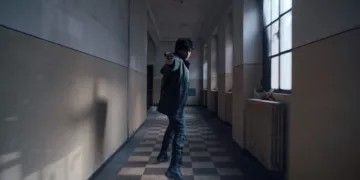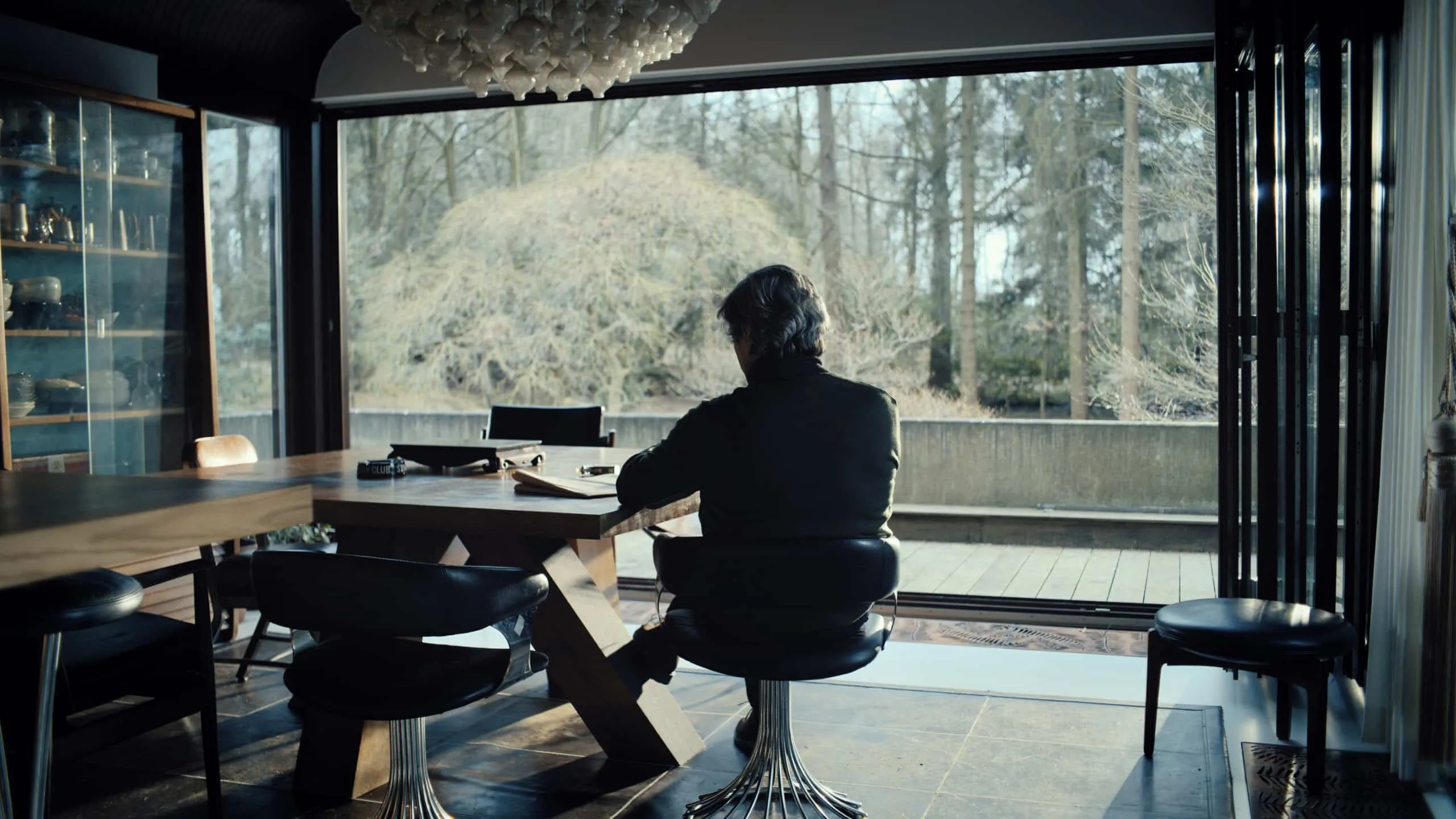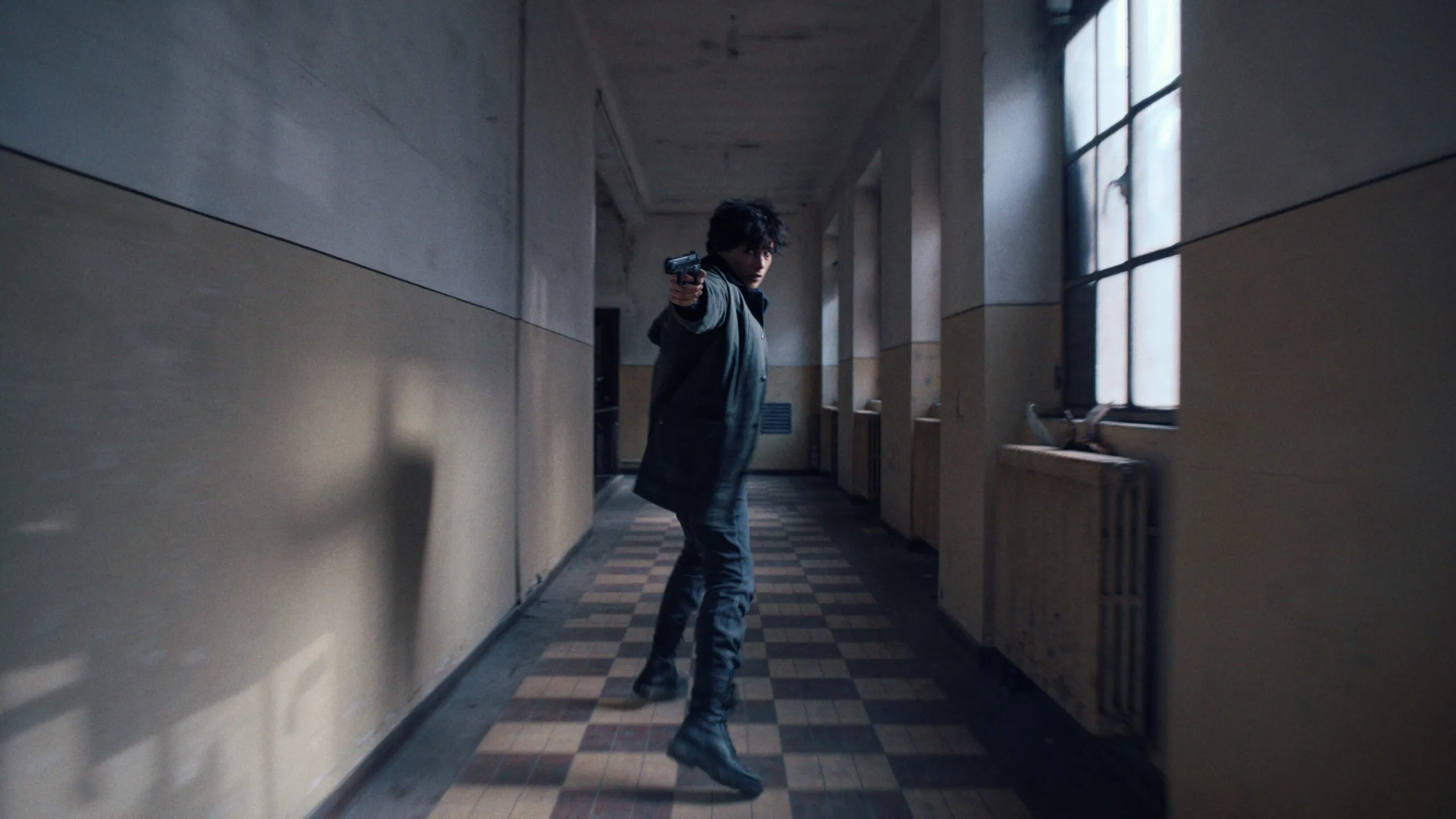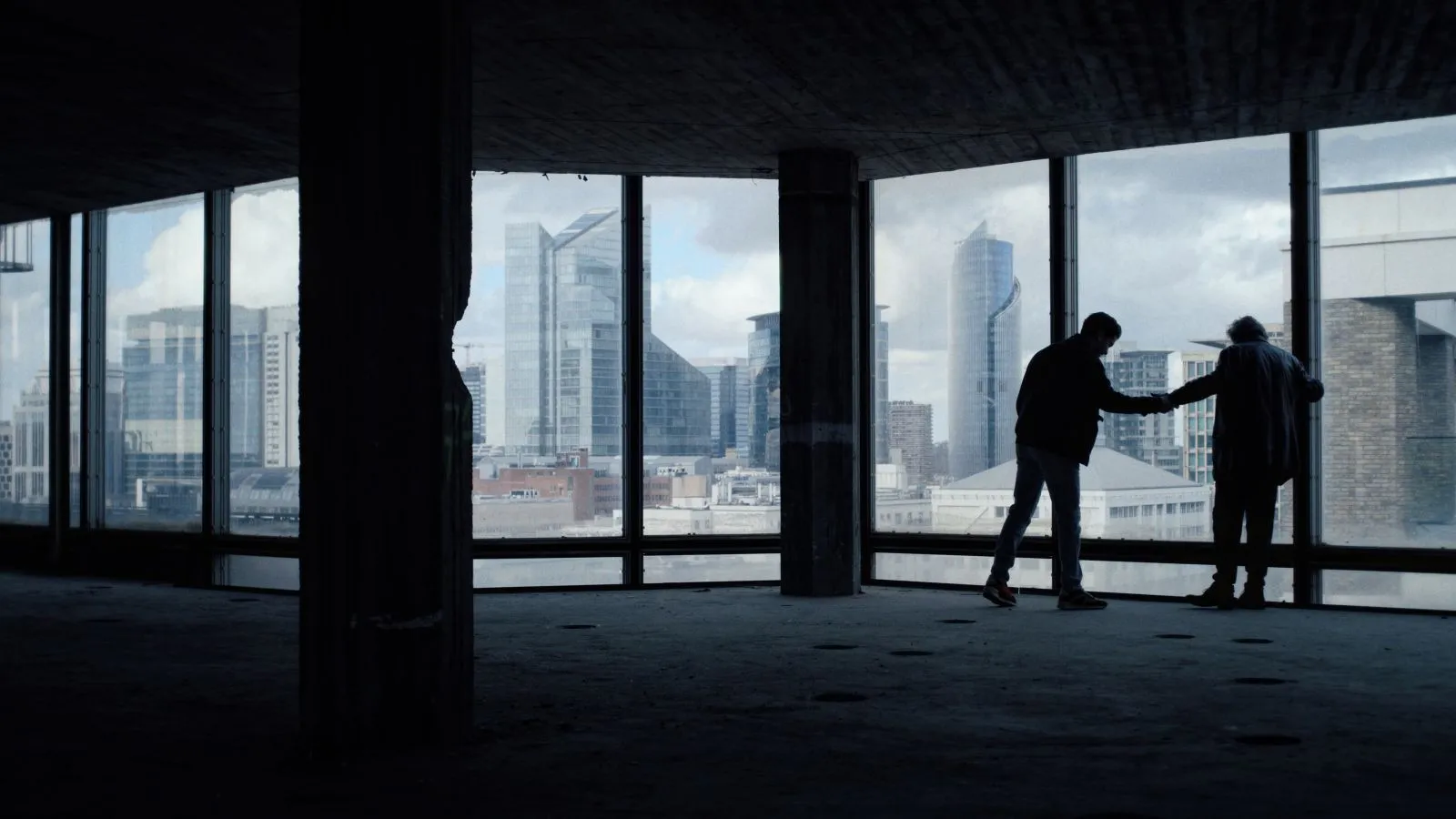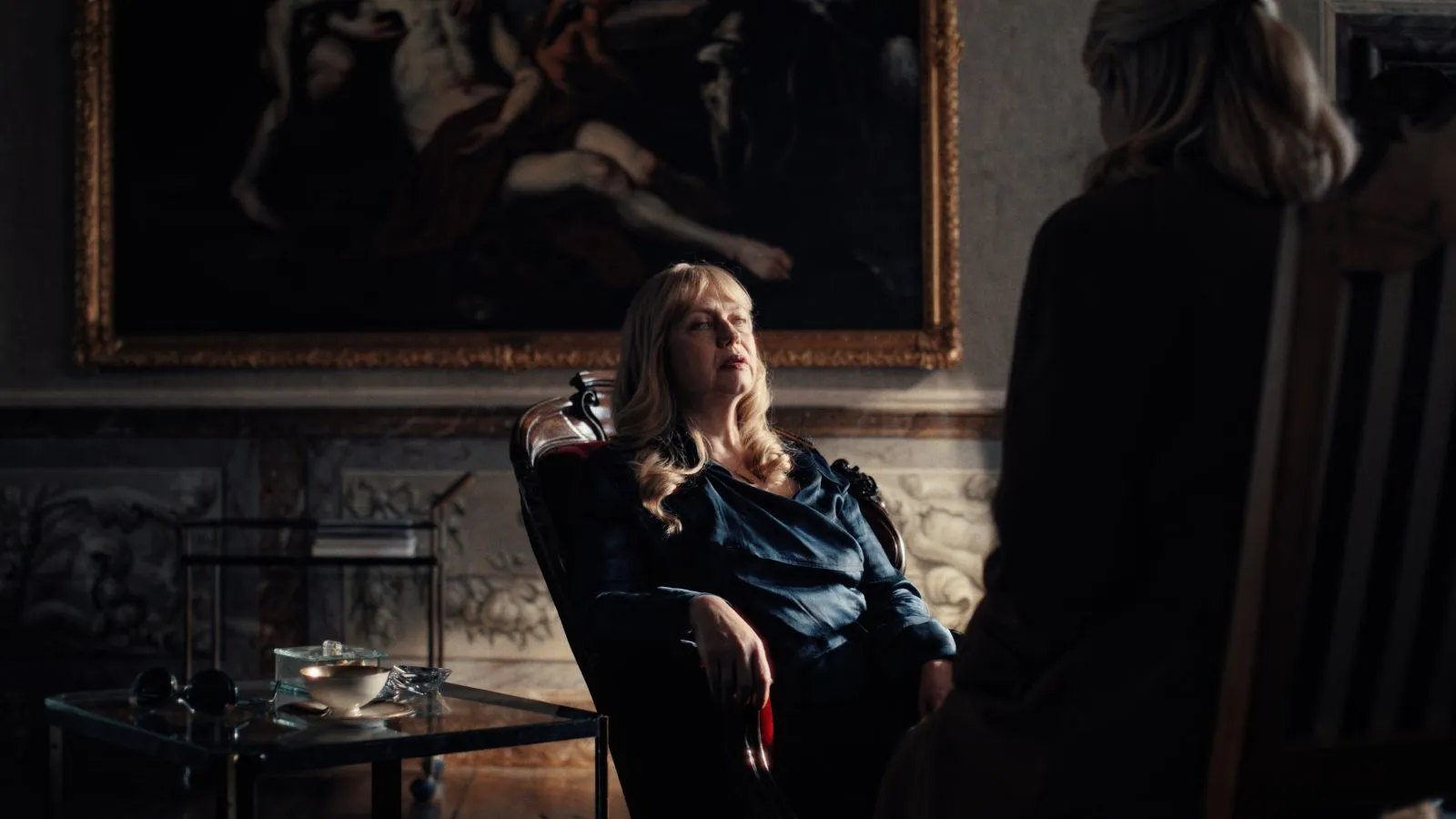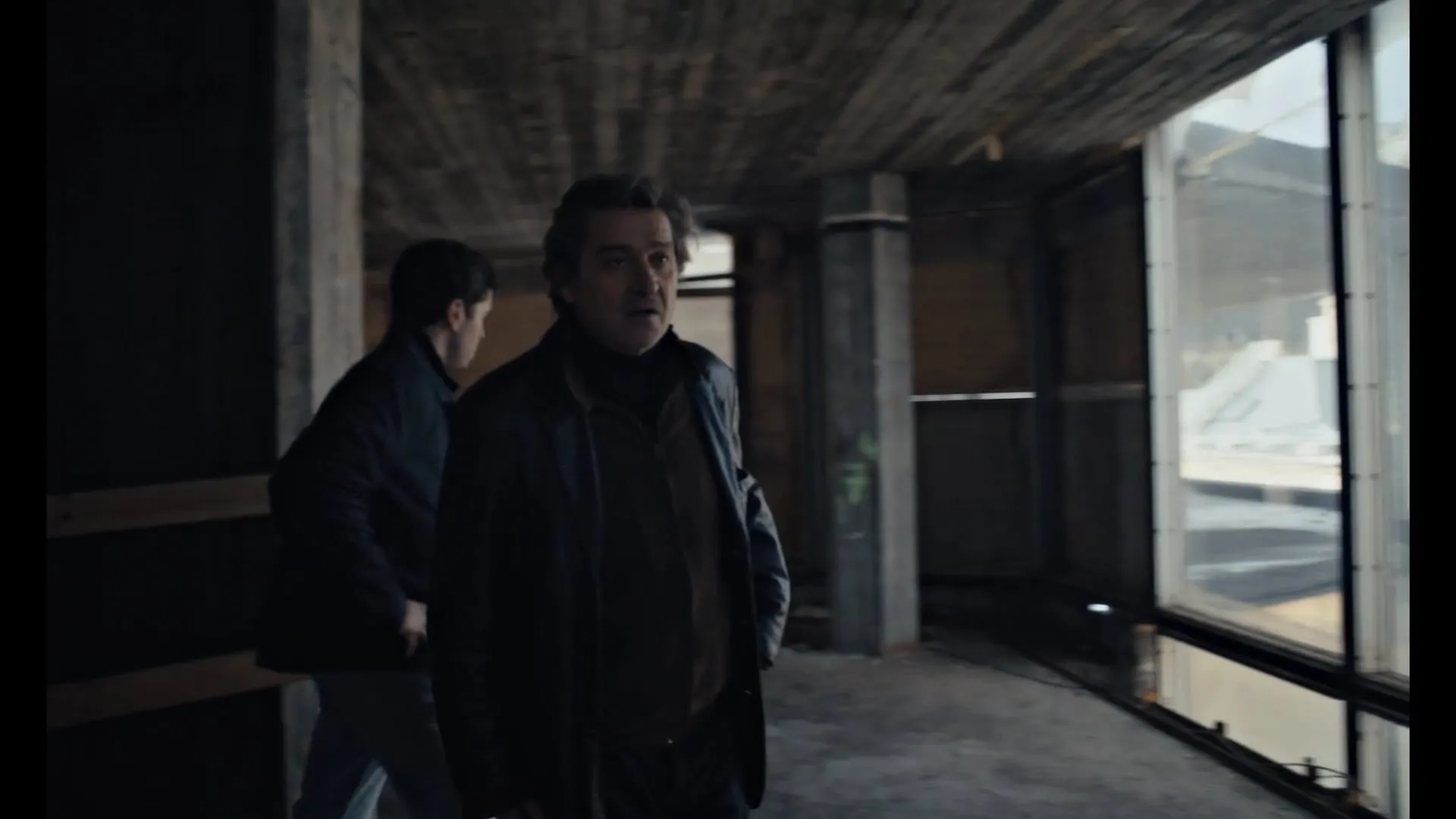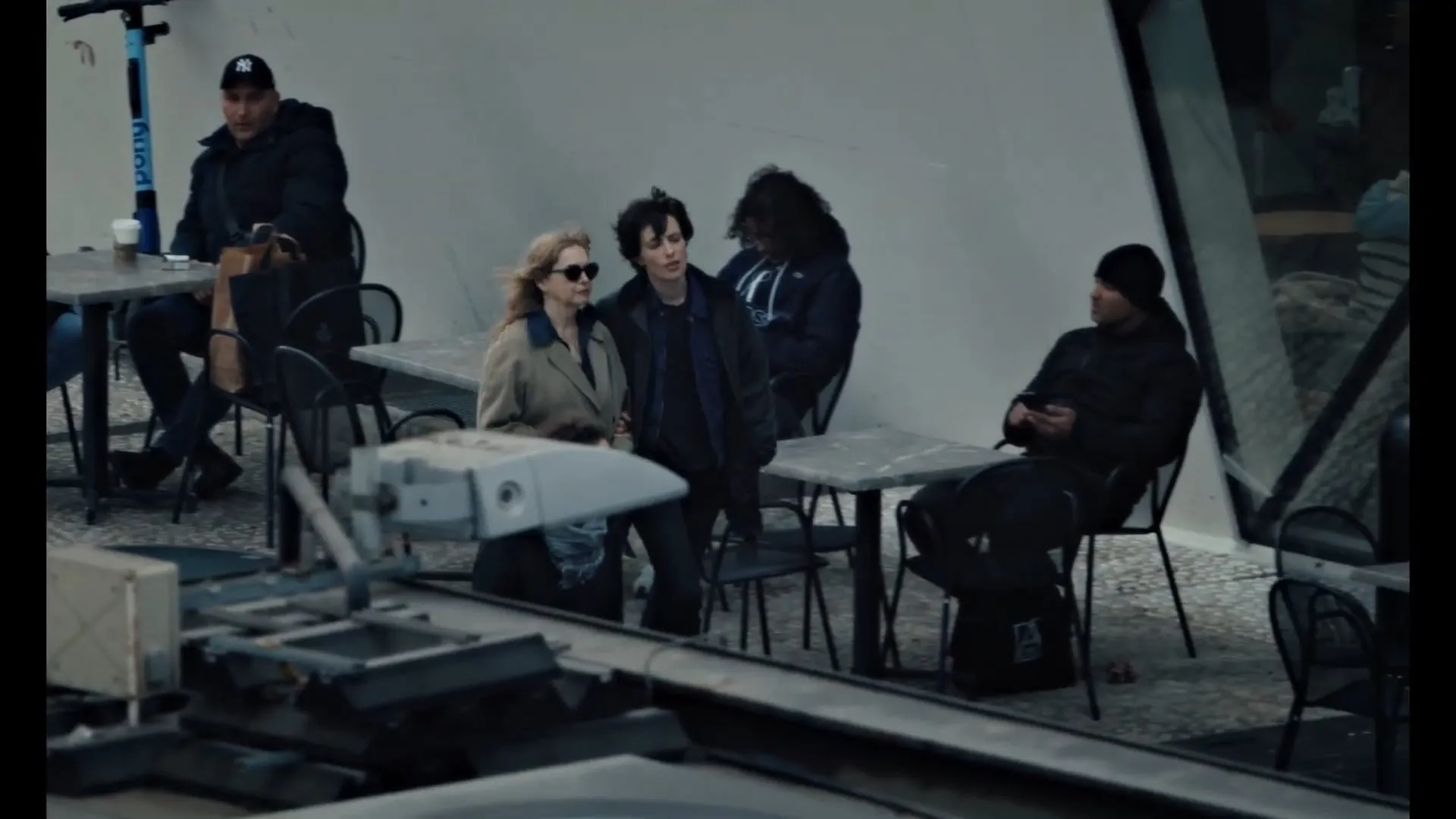Christoph Hochhäusler’s Death Will Come pulls us deep into the murky underworld of Brussels. A cash courier’s arrest kicks off a twisting tale as gangster boss Charles Mahr hires mysterious assassin Tez to locate the killer. Played compellingly by Sophie Verbeeck, Tez is tough yet keeps her motives hidden. She navigates a web of intrigue involving Mahr, sleazy rival Patric, and the enigmatic madame Mela.
This neo-noir sinks its claws into the architecture and atmosphere of its setting. Gritty streets and rundown spaces become characters in their own right. We feel the oppression of shadowy figures pulling strings from darkened corners. Hochhäusler paints his city in shades of danger and deception, leaving us to untangle the threats lurking around every turn.
Under the genre pacing lie deeper mysteries. What drives these figures to walk the lines between power, corruption, and mortal peril?
As Tez delves for answers, her own fate becomes entwined in ways even she can’t foresee. Intricate relationships form the heartbeat of this pulsating crime story, playing out in a living, breathing urban canvas that reflects the moral ambiguities of its players. In Death Will Come, the fogged borders of reality harbor more than one surprise.
A World of Shadows and Intrigue
Death Will Come immerses us in a moody, atmospheric world through its impeccable use of location, cinematography, and score. Hochhäusler transports us to a Brussels filled with danger around every corner. From rundown alleyways to lavish apartments, each setting oozes atmosphere and enhances the film’s tone.
Cinematographer Reinhold Vorschneider brings these spaces to life, shrouding them in shadows to create a pervasive sense of unease. His camera lingers in cramped doorways or peers down from high angles, putting us on edge alongside the characters. Whether revealing fleeting glimpses or soaking scenes in tense silences, his work draws us deeper into the mystery.
Composer Nigji Sanges’ haunting score is the perfect soundscape for this noir world. Its low, minimalist strains amplify even subtle moments, keeping us anxiously awaiting the next beat to drop. In quiet scenes, it hints at implied threats just below the surface. During tense sequences, it ratchets up an oppressive mood that mirrors Tez’s rising suspicions.
Hochhäusler directs with precision, letting atmospheric tension speak for itself at times. One scene sees Tez replace Mela’s companion on the street, their faint interaction saying so much through gestures alone. Another plays disorder into order as Tez pieces together a deadly plot. We’re left grasping for clarity like the protagonist, building intrigue with every meticulous reveal.
Every component comes together to saturate the film in a moody, suspenseful aura. It’s a triumph of using visual and aural effects to elevate characterization and immerse us in this shadowy criminal underworld. Hochhäusler, Vorschneider, and Sanges have crafted a masterclass in letting atmosphere do the storytelling.
Threads of Intrigue
Death Will Come weaves an intricate tapestry through its ensemble of compelling characters. At the forefront is Sophie Verbeeck’s mesmerizing Tez, whose drive to uncover hidden truths proves just as powerful a mystery as her past. Verbeeck imbues her with a conflicted inner strength and vulnerability that keep us entranced.
Delphine Bibet is equally captivating as the enigmatic Mela. Under her calm surface, we sense immense control and manipulation of those around her. The power dynamics between her and the women in her care hint at untold depths.
Louis-Do de Lencquesaing brings charismatic nuance to Charles Mahr, a man determined to maintain control even as his life slips away. An air of weariness masks hidden ambitions and ruthlessness.
Marc Limpach particularly shines as the gleefully seedy Patric. Buried beneath flash is a cunning intelligence, making his motives impossible to deduce.
While the plot sidelines the men at times, Hochhäusler populates Death Will Come with richly layered protagonists. Through subtext and evocative performances, they immerse us in the film’s criminal underworld. Intrigue lingers not only in the plot but within these compelling characters and all they leave unsaid. Performances elevate what’s only hinted at to keep us grasping for truths just out of reach.
Weaving a Web of Intrigue
The layered plot of Death Will Come takes its time unwinding, but for good reason. Information drops piece by piece, like the clues Tez follows on her case. This gradual reveal keeps viewers as in the dark as the protagonist.
I appreciated how the director establishes mystery from the start. We’re left wondering along with Tez about the twisted relationships and motives behind the courier’s death. Her discovery she’s being tailed itself becomes a suspenseful moment.
At times the twisting plot proved complex, with some threads left frustratingly loose. A bit more focus on moving the mystery forward could have strengthened the film’s tight 122-minute runtime.
Still, I couldn’t deny the thrill of watching Tez piece together the elaborate criminal web. Complex character dynamics and power plays emerge through her investigation. It’s these intricate personal connections amongst the criminals that give the narrative intriguing depth beyond a straightforward crime plot.
While not perfect, the film engrosses through its lingering mood and mysteries within mysteries. Information unveils in a carefully paced flow that keeps you invested in unraveling the convoluted whole. Death Will Come presents a criminal underworld that’s impossible to fully decode, like the city it inhabits.
Beyond the Surface
Death Will Come contains rich symbolism that gave me much to ponder. Sight and perception are called into question through figures like the enigmatic Madame Mela. How she perceives her world and manipulates others through blindness makes for an intriguing motif.
Power and its corruption also feature heavily. Criminal empires built on exploitation are depicted in all their depth and complexity. Mahr’s crumbling authority reflects how completely mortality can destroy even the strongest grip on an underground realm.
Notions of fate loom large thanks to the fatalistic title. Do our ends truly come, or can we influence when and how? The film leaves this open to interpretation, much like its characters wrestling until the finish for what little control remains.
I appreciated subtle feminist commentary in Tez, Julie, and Mela overturning stereotypes through agency and intrigue all their own. Their relationships to power offer multidimensionality that elevates the narrative.
Symbols like the Crespi painting hint at deeper layers and link the story’s fabric. Divine punishment for wrongs and the ephemeral nature of mortal conquest frequently emerged as themes underpinning it all.
While not perfect, Death Will Come weaves a densely thematic tapestry that invites constant reexamination. It proves that crime films can probe heady ideas just as potently as overtly arthouse fare when a visionary director guides the material.
Echoes of the Masters
Death Will Come bears the fingerprints of noir’s greats like Melville yet carves its own path. It nods to classic films’ styles while crafting fresh intrigue. Scenes pay homage to iconic shots but never feel derivative.
I admired subtle nods to seminal works in Hochhäusler’s direction and Peltzer’s screenplay. Plot devices and aesthetic flourishes reminiscent of bygone crime standards feel like allusions instead of imitation.
Connections also emerged to the director’s past output. His exploration of murky worlds of moral ambiguity and shadowy figures finds apotheosis here. Fans will appreciate echoes of his signature atmosphere and characters.
Situated within Germany’s rich auteur tradition, the film engages in respectful dialogue with forerunners. It revives revered conventions through new eyes rather than regression. The French language too provides thoughtful intertextuality.
Death Will Come reworks genre with postmodern nuance, drawing from masters without enslavement. Richer for its references yet standing boldly on their shoulders, it salutes film history while adding an original, intricately crafted installment to crime cinema’s canon. Hochhäusler proves himself among the masters he admires.
Into the Shadows
Death Will Come weaves a shroud of mood befitting its ominous title, unraveling deeper mysteries with each viewing. Hochhäusler proves himself a master of using genre to dissect the murky facets of the human experience.
Not without flaws, its complex web of intrigue and conflicted characters immerses through atmospheric brilliance. Unforgettable locales and images linger in my mind alongside themes of fate, corruption, and the shadows concealing our true selves.
Stellar performances like Verbeeck’s anchor a narrative as twisting as the city streets Tez navigates. While not all plot threads find resolution, the journey itself absorbs through simmering interpersonal motives and moral ambiguities.
Demanding cinema aficionados will find much food for thought within Death Will Come’s noir underworld. Beyond visceral thrills, it teases existential pondering on life’s fleeting grip and what darkness may lurk within our grasp for control.
While not a flawless piece, Hochhäusler’s intimate understanding of genre and talent for haunting atmosphere make this thriller a resonant, artfully crafted addition to the criminal canon. Fans of atmospheric mysteries should venture into its shadows for an undeniably engrossing experience.
The Review
Death Will Come
Through moody locales, evocative performances, and an aura of moral ambiguity, Death Will Come weaves an intricately layered noir tale that demands repeat viewings to unravel its intricacies. While not perfect, Hochhäusler's mastery of atmospheric storytelling through genre ensures this thriller remains a memorable excursion into the criminal underworld's murkiest recesses.
PROS
- Atmospheric cinematography and production design
- Complex characters and compelling performances
- Thought-provoking exploration of criminal dynamics and morality
- Masterful use of subtle visual storytelling
- Moody environments that enhance unease
CONS
- Convoluted plot that leaves some threads unfinished
- Relies heavily on atmosphere over visceral action/pacing
- Focuses more on mystery than psychological depth
- Fails to fully resolve the central mystery
- Minor characters could have more dimension.
